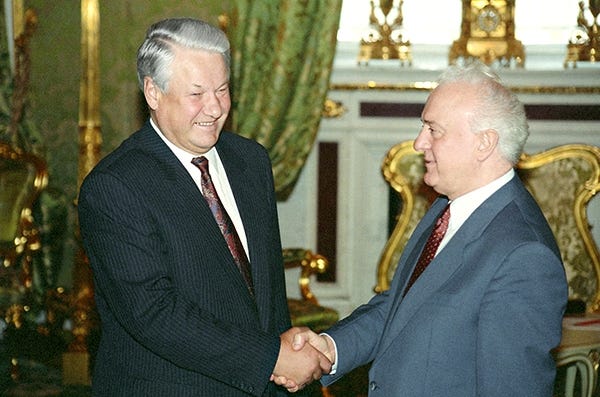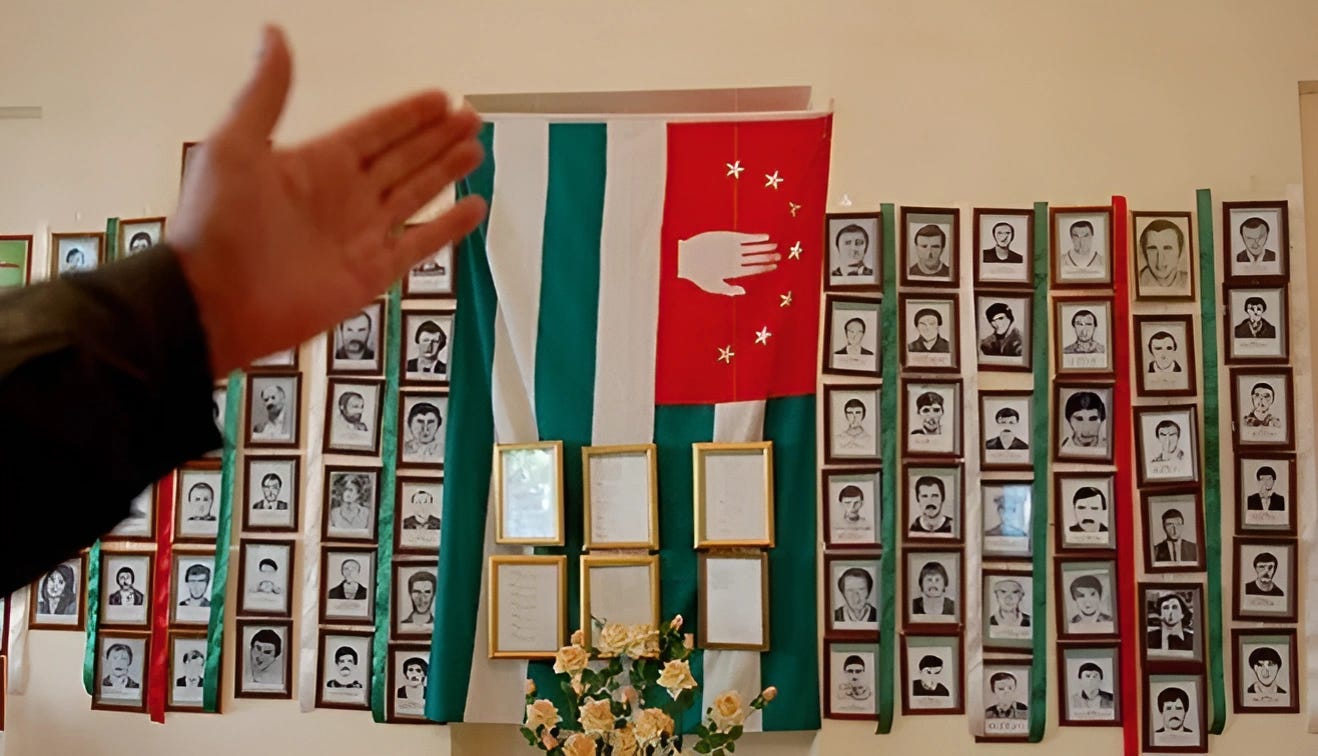SUKHUM / AQW'A — Today, 14 August 2024, marks 32 years since Georgia unleashed its war of aggression against the Abkhazians. On 14 August 1992, Georgian troops led by Tengiz Kitovani entered Abkhazia with tanks and combat helicopters, sparking a 13-month war.
Ironically, the official pretexts for deploying Georgian troops were later contradicted by Eduard Shevardnadze himself in an interview, where he ultimately placed the blame for starting the war on his warlords, Kitovani and Ioseliani.
Years later, in the documentary "Absence of Will," Eduard Shevardnadze reflected on this decision, saying, "Defence Minister Kitovani should never have sent troops to Sukhumi. That was our biggest mistake."
However, this aggression didn’t occur in a vacuum. The seeds of the conflict were sown earlier, during a pivotal meeting on 24 June 1992 in Dagomys. This meeting, which aimed to resolve the Georgian - South Ossetian conflict, also set the stage for the events that would later unfold in Abkhazia.
The meeting successfully concluded with an agreement to end the war, as continuing hostilities would have prevented Georgia from joining the UN without Russian support. On the same evening, Yeltsin and Shevardnadze signed a communiqué agreeing that their respective law enforcement agencies would cooperate to combat semi-legal and other armed groups within their jurisdictions. This agreement laid the groundwork for Georgia’s military action in Abkhazia on 14 August.
This meeting in Dagomys is now remembered as the “Dagomys Conspiracy.” In reality, it gave the green light for military action, effectively sealing Abkhazia’s fate. The agreement—essentially a communiqué—called for the restoration of order, with Georgian troops taking control and Russia agreeing not to interfere. That was the crux of the matter.
The war ended on 30 September 1993, with an Abkhazian victory. However, like all wars, this triumph was overshadowed by immense tragedy. Thousands perished on both sides, with every Abkhazian family losing at least one member. The Abkhazians lost 4% of their population (in Abkhazia) during the war—equivalent to 12 million in terms of the U.S. population.
In the war's aftermath, Abkhazia faced an embargo by the Commonwealth of Independent States (CIS), led by Russia and Georgia. Georgia attempted several times to reclaim Abkhazia by force, but without success.
Years of conflict have left Abkhazians distrustful of Georgians and wary of the West, which has largely ignored their perspective while supporting Georgia. In a 1993 speech in London, Abkhazian historian Stanislav Lakoba described Abkhazia as being "between hammer and anvil." This aptly characterises Abkhazia's ongoing position between Russia and Georgia.
Even after 32 years, the tragedy, history, and even the very ethnic existence of the Abkhazian people are still denied and distorted by the Georgian majority. In response, we remain steadfast in our position. Just as we won the war imposed on us 32 years ago, we will also win this struggle.
Once again, we honour all those who sacrificed their lives for this cause, and we extend our deepest gratitude to our diaspora, our brothers and sisters from the North Caucasus, and the citizens of Abkhazia from diverse ethnic backgrounds who came to our aid.
+ Georgia-Abkhazia Conflict: View from Abkhazia, by Liana Kvarchelia
+ Georgian-Abkhaz War | FBIS Reports (Aug-Oct. 1992)
+ Tengiz Kitovani: "they [Russians] officially gave us the 108 tanks of the Akhaltsikhe Division"







